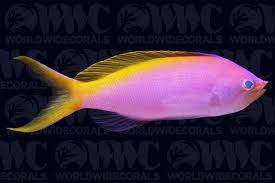Dragons and Their Role in Love Rituals: A Symbol of Passion and Protection

Throughout history and across cultures, the dragon has been a symbol of strength, mystery, and power. Yet, it is not only in the realm of destruction and chaos that the dragon is revered; it also plays a significant role in rituals of love, passion, and protection. From ancient Chinese ceremonies to European folklore, dragons have been central to numerous rituals intended to invoke love, secure affection, and foster harmonious relationships. This article explores the multifaceted role of dragons in love rituals, shedding light on their symbolic importance in the domains of romantic connection, desire, and protection.
The Dragon as a Symbol of Love in Mythology
Dragons, though often depicted as fierce and untamable creatures, are also seen as protectors of love, guardians of sacred bonds, and symbols of passion in many cultures. The powerful and captivating nature of the dragon lends itself well to the theme of love, often representing the strength of emotions, the union of opposing forces, and the deep connections that define relationships. The paradoxical nature of the dragon—ferocious yet protective—makes it an ideal symbol for rituals intended to enhance or protect love.
Dragons in Chinese Mythology and Love Rituals
In Chinese mythology, dragons are often considered symbols of good fortune, prosperity, and auspiciousness. They are revered as guardians of happiness and protectors of marital harmony. Dragons are also believed to have the power to influence the cosmos and govern the forces of nature, which makes them central figures in rituals aimed at invoking love and securing a prosperous relationship.
The most significant example of a dragon’s role in love rituals can be found in the Chinese Dragon Boat Festival, which, although originally a commemoration of the poet Qu Yuan, has evolved to incorporate themes of love and devotion. Couples participating in the festival perform rituals that include dragon boat races, which are said to symbolize the efforts of lovers trying to stay united despite obstacles. The dragon boat, an ancient symbol of strength and protection, serves as a representation of the challenges that lovers must navigate to sustain their relationship. It is believed that participating in this ritual with a loved one can bring harmony and mutual devotion, reinforcing the connection between the two.
Furthermore, in traditional Chinese wedding ceremonies, the dragon and the phoenix (a symbol of femininity and grace) are paired together to symbolize the union of opposites and the harmony that love can bring. The dragon’s presence in the ceremony signifies not only protection and auspicious beginnings but also the strength and vitality that are needed to maintain a love that can overcome trials. In this context, the dragon’s role extends beyond that of a mere creature of myth, becoming a protector of the couple’s love and a guarantor of their enduring happiness.
Dragons and Romantic Symbolism in Japanese Culture
In Japanese culture, the dragon also plays a significant role in the symbolism surrounding love and relationships. Although dragons are often associated with water, rain, and storms in Japanese mythology, they are also seen as symbols of transformation and the natural forces that govern the world. In the context of love, the dragon represents the eternal nature of love, as it is a creature that is believed to possess the power to transcend time and space. The dragon’s ability to change shape and move fluidly between realms makes it a fitting symbol for the fluid and transformative nature of romantic relationships.
One of the most well-known connections between the dragon and love in Japanese folklore is the story of the Dragon Princess. In this tale, a powerful dragon transforms into a beautiful princess who falls in love with a mortal man. The couple’s love is tested by various trials, but their enduring devotion is rewarded, symbolizing the idea that love, like the dragon, is both powerful and transformative. The dragon, in this case, is a protector and a catalyst for the deep emotional journey that love can bring.
In Japanese rituals, dragons are sometimes invoked to bless couples and ensure that their love is both strong and lasting. Dragon motifs appear in wedding decorations, amulets, and charms, symbolizing protection, fidelity, and strength in the relationship. The image of the dragon guarding a treasure or a sacred object reflects the idea of love as a precious gift that must be protected and nurtured.
The Role of Dragons in European Folklore
In European folklore, the dragon often appears in tales of knights and heroes, where it is usually depicted as a fearsome foe. However, in certain traditions, dragons take on a more complex and positive role, especially in stories where love and romance are central themes. In these myths, the dragon often represents the ultimate challenge that must be overcome in order to achieve a worthy and lasting love.
One of the most iconic stories of a dragon’s involvement in love can be found in the legend of St. George and the Dragon. In this tale, St. George, a brave knight, defeats a fearsome dragon that has been terrorizing a village. The dragon’s defeat leads to the liberation of a princess, and her marriage to St. George is celebrated as a victory of love and devotion. The dragon, in this context, symbolizes the obstacles that lovers must face in order to be united, and its defeat is seen as a metaphor for overcoming the challenges and trials of love.
Dragons in European folklore also symbolize the destructive power of jealousy and desire. In certain stories, dragons are portrayed as guarding treasures, such as a loved one’s heart or affection, and can only be defeated by proving one’s true love and commitment. In these cases, the dragon represents the trials that must be faced to prove the purity and sincerity of romantic intentions.
The Dragon and Love Protection in Celtic Traditions
In Celtic traditions, dragons have long been associated with protective and nurturing qualities, and this extends to their role in love rituals. In Celtic mythology, dragons are seen as guardians of sacred lands, treasures, and relationships. It is believed that by invoking the dragon’s presence, lovers can ensure that their union is protected from outside forces.
In ancient Celtic rituals, couples would often exchange love tokens adorned with dragon imagery. These symbols were thought to bring strength, courage, and protection to the relationship, ensuring that love would prevail despite challenges. The dragon’s role as a protector is especially important in the context of love, as it is believed to shield the couple from harm and foster a secure and lasting bond.
In some Celtic healing practices, the dragon is also associated with fertility, and couples would seek the dragon’s blessing to ensure that their relationship would be fruitful and that their love would bear fruit in the form of children. The dragon, with its association with regeneration and vitality, embodies the life-giving energy that sustains love and relationships.
Dragons in Contemporary Love Rituals
The influence of dragons in love rituals is not confined to ancient mythologies. In modern times, the dragon remains a popular symbol in weddings, love rituals, and celebrations. In many cultures, the dragon is still used to represent strength, passion, and protection in romantic unions.
For example, in some Asian weddings, the dragon and phoenix are still common motifs, appearing in decorations, invitations, and gifts. The dragon, as a symbol of strength and vitality, is believed to bring good fortune to the newlyweds and ensure that their relationship will thrive. In addition, couples who seek to deepen their emotional connection may perform rituals that invoke the dragon’s energy, asking for its protection and blessing on their love.
In Western cultures, the idea of dragons guarding treasures is often incorporated into engagement ceremonies and proposals. A dragon-shaped pendant or ring may be used as a symbol of the couple’s commitment, with the dragon representing the strength and longevity of their love. These modern interpretations of dragon symbolism draw on the ancient idea that love, like treasure, is precious and worth protecting.
Conclusion: The Enduring Symbolism of the Dragon in Love Rituals
Throughout history and across cultures, the dragon has been a powerful symbol of love, protection, and passion. From ancient Chinese and Japanese mythology to European folklore and Celtic traditions, dragons have played an essential role in rituals designed to honor love and strengthen romantic relationships. Whether as protectors, mediators, or symbols of strength, dragons continue to inspire and empower those seeking to nurture and safeguard their love.
In the modern world, the dragon’s influence in love rituals remains strong. As a symbol of enduring passion and protection, the dragon continues to be a central figure in weddings, engagements, and romantic celebrations, reminding us of the transformative and powerful nature of love. Whether invoking the dragon’s strength to overcome challenges or seeking its blessing to ensure lasting happiness, the dragon remains a timeless and potent symbol of love’s enduring power.

